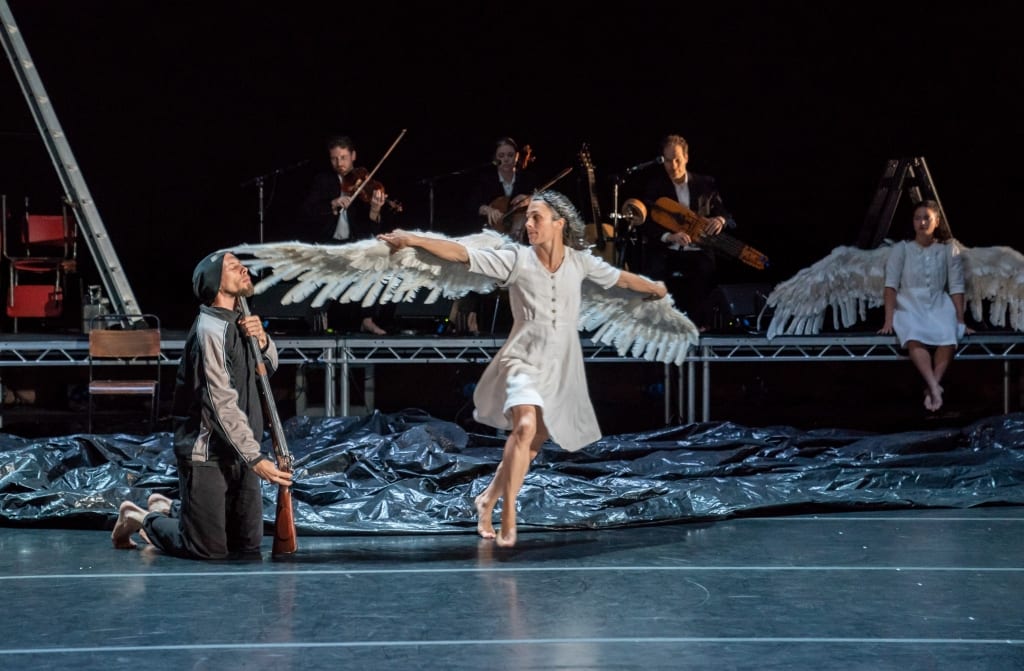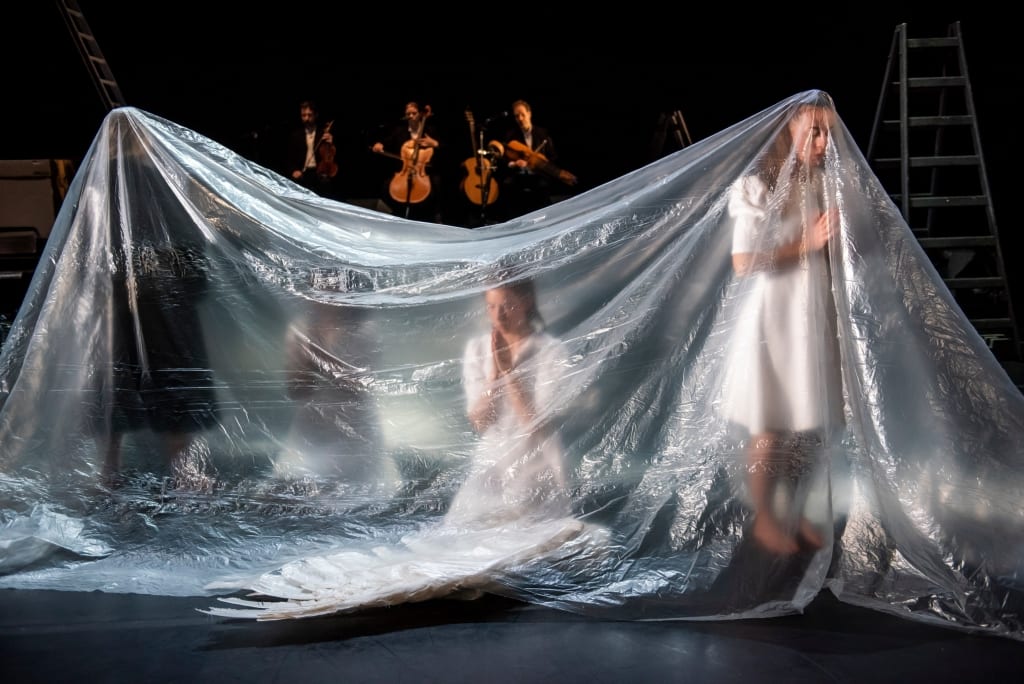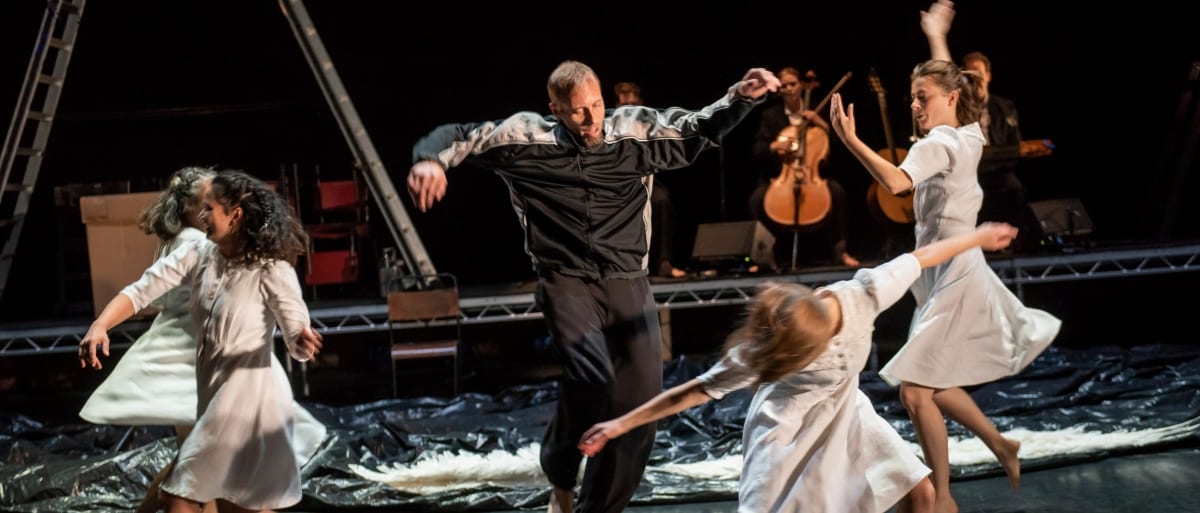If you’re going into BAM’s Next Wave production of Swan Lake expecting magicians, princesses, and a Tchaikovsky score, you will be disappointed. But you won’t be disappointed for long. Irish dance company Teac Damsa’s New York premiere of Swan Lake/Loch na hEala is indeed infused with all the magic of the original story. Written, directed, and choreographed by the talented Michael Keegan-Dolan, Swan Lake / Loch na hEala is wild and wonderful. But it is the contemporary elements of this show that reinvent it with a tragedy that arguably can’t be conveyed through the distant world of sorcerers, castles, and ancient royalty.
Drawing on contemporary events in modern-day Ireland, Michael Keegan-Dolan recasts the prince of the story as Jimmy (Alexander Leonhartsberger), a young man in his thirties who is diagnosed with depression. Driven further into his depression by the open ridicule and demonization he endures from his neighbors (not to mention to familial pressure to shape up his life and marry from his old-fashioned mother), he takes the shotgun that once belonged to his beloved late father down to the lake one night to kill himself. And it is here, on the shores of the makeshift lake, that the ordinary and tragic transcends into magical realism. Jimmy’s presence attracts Finola (Rachel Poirier), the swan princess, and the two begin a mesmerizing dance.

And this is where the tragedy of this ancient myth collides so beautifully, so painfully with reality. The four dancers who play swans have flitted around the stage from the beginning, beating their powerful (and stunningly crafted) swan wings and reacting with the skittish tendencies of wild animals. There is something mistrustful about they way they move, the way they climb up and down the ladder perches set up for them, even the way they dance with abandon, as if they are ready to flee at the slightest hint of danger. It is only later that we learn the truth of where they came from. For Finola is not really a princess, but a 17-year-old girl who was sexually assaulted by the local priest (Mikel Murfi) who was in charge of her education. When the priest realized that Finola’s three younger sisters were witness to his assault, he cursed them all to be turned into “filthy animals” so they couldn’t speak a word of what had happened.
The intense beauty and sadness of Jimmy and Finola’s meeting at the lake, therefore, is not only owing to the exceptional choreography of Keegan-Dolan, or the lightness of the dancers themselves, but because there is something healing about seeing these two broken people find some sort of purpose in each other. But whether that purpose is a visceral feeling or nothing more than a moonlit dance remains unknown to us.

From the beginning to the extravagant end, where audience members may unexpectedly find themselves coated in white swan feathers, Teac Damsa’s Swan Lake is is a show that entrances the senses. This production is visually stunning, and it is carried by the music of Dublin-based band Slow Moving Clouds, whose self-described Irish and Nordic folk influence create a mood of mythological proportions.
Just like the man on whom Jimmy’s character was based, Jimmy meets a senseless, yet inevitable end. The magical reveries on the shores of the lake and whatever his connection to Finola might have stimulated are cut short with gunshots: a harsh reminder of what century this story, for all its ethereal beauty, is actually set in.
Interestingly enough, when we first meet the priest who also acts as our narrator, he, like the graceful girl-swans, is in the form of an animal – a “filthy animal” like the one he told the girls they would become. But he has none of their grace and beauty. He is stripped to his underwear and tethered to a cinder block in the center of the stage, bleating incessantly in the perfect image of a goat. He does so as the audience filters into their seats, and continues to do so until an elaborate dance number that calls to mind an animal sacrifice forces his transformation back into a man. It is only then – and after a cup of tea and a few biscuits – that he can tell us the story of Swan Lake.

